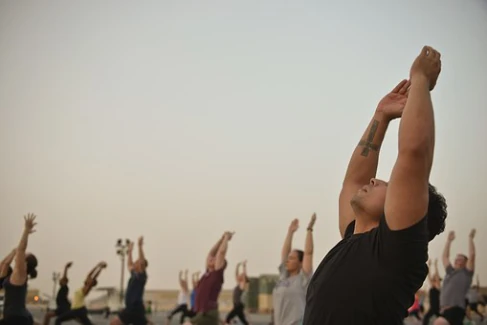Holistic Ways to Support your Mental Health
Wednesday, November 01, 2017, 03:00 PM
Mental health issues continue to be a growing concern in Canada. However, there is a growing movement to promote awareness and end the stigma surrounding mental health problems. The aim is to make it easier to ask for help and reduce the number of people who suffer each year.
Global news reports that one third of all Canadians are at risk of developing mental health concerns. The Centre for Addiction and Mental Health (CAMH) reports that, in any given year, one in five Canadians experiences a mental health problem. 63% of millennials, or those aged 18 to 33, are at high risk of experiencing mental health issues.
The Canadian Mental Health Association estimates that 4,000 Canadians die from suicide each year. That is eleven people per day. According to CAMH, mental health problems are a leading cause of disability in Canada.
People suffering from mental health problems are twice as likely as the general population to have substance abuse issues and are more likely to die prematurely. Further, 70% of mental health problems have early onset in childhood and adolescence.
Various holistic practices can be used with other medical and therapeutic treatment plans to support those suffering from mental health issues, including depression and anxiety. Holistic treatments also complement each other in dealing with mental health issues, creating a comprehensive mental health "toolbox."
Three holistic ways you reduce stress and anxiety include taking a class, seeking a holistic treatment, and repeating self-affirming mantras.
Take a Class
Exercise and movement have been touted as a prescription for anxiety, depression, and stress. Participating in an invigorating class that you enjoy is a great way to produce endorphins, which can help boost mood and alleviate stress.
You may choose to attend a class that is not physically demanding, such as yin yoga or meditation. Despite the sedentary aspects of these activities, they have positive effects on stress and anxiety.
While a simple change of scenery and fresh air can positively impact your well-being, the research backing mindful practice as a way to promote mental health is expansive.
Whatever you choose, holistic classes are a great way to support your mental health. They are offered in a supportive atmosphere with people that recognize the benefits of self-care. The instructors are there to support your personal wellness journey.

The environment is also free of interruptions that may distract from your practice.
The following holistic classes are great for calming the mind and body. For added benefit try practising outside; research shows that being in nature leads to a lower risk of depression.
- Yoga - Whatever your age, body type, level of fitness, and reason for practising, there is a type of yoga for you. Yoga benefits metal health by releasing tension, promoting mindfulness, and boosting endorphins.
- Pilates - A physically demanding exercise that focuses on strengthening the core of the body. It positively impacts mood by releasing tension in the body and increasing activity levels.
- Tai Chi - focuses on physical strength conditioning as well as resilience, mental clarity, and creating the proper balance and flow of Qi throughout the body.
- Qigong - Also referred to as movement meditation, Qigong is characterized by flowing, gentle exercises. This practise is great for people who want a calm yet active activity that connects them to their body.
Seek a Holistic Treatment
While as a society we seem to live busier and more stressful lives than ever before, there is also an increased awareness of the benefits of practising self-care.
Stress is a major factor contributing to many mental health issues. Research shows that taking a mental break to recharge the mind and body can have a positive impact on anxiety and depression.
Various holistic treatments offer techniques to help release tension in the body, stimulate blood and energy flow, promote optimal functioning of the body systems, and promote relaxation.

Some treatments to explore are:
- Massage: Whether you choose a deep tissue massage or a relaxation massage, such as lomilomi, the benefits of massage therapy on stress levels are significant.
- Craniosacral Therapy: Therapists use their hands to release built up tensions within the body and to support the optimal flow of cerebral spinal fluid. This practice has numerous energetic and psychological effects, including connecting clients to their own well-being
- Trager®: The practice teaches the client to control and release the tension patterns within the body. It also facilitates deep relaxation and increases mental clarity.
Channel a Mantra or Affirmation
Mantras and affirmations are phrases, words, or feelings that are repeated either internally or out loud. They serve as an anchor for the mind, keeping thoughts focused in the midst of many distractions.
Traditional mantras were a part of ancient yoga practice and were often chanted as a way to connect to Hindu and Buddhist Gods. An example is the Ganesh Mantra for success. Lord Ganesh is the Hindu God known for removing obstacles.
These traditional mantras are still a vital part of some spiritual practices, such as ashtanga and kudalini yoga, meditation, and even Ayurveda. In fact, Ayurvedic practitioners prescribe chanting mantra as a form of sound healing.
More modern forms of mantra and affirmation are also widely practised. A classic example is the train chanting "I think I can, I think I can," in the book The Little Engine that Could. If you choose to adopt this mantra though, repeating "I know I can" may be more effective.
Affirmations are for everyone:
- Runners repeat affirmations to promote a positive attitude, dispel negative thoughts, and stay motived.
- Influential celebrities and athletes use the power of visualization to promote self-esteem and reach professional goals.
- Inventors and business leaders, such as Steve Jobs (whose mantra was focus and simplicity) used affirmations to keep focused and guide decisions.
For those who suffer from anxiety and depression, repeating affirmations is a simple yet effective tool to stay grounded. Research on the positive effects of self-affirmation shows numerous benefits to the practitioner.
The focus on core values and guiding principles brings about a more expansive view of the self and promotes future-oriented thinking. This in turn weakens the negative effects that failure and criticisms have on your sense of self-worth. Focusing on core values in stressful times helps to regulate emotions.
Take Charge of Your Mental Health
There are numerous ways you can use holistic practices to promote your overall mental health. Taking time for self-care, participating in a class, and channelling self-affirming thoughts are great places to start.
Be creative. Not all practices work for everyone and it may take time to find what benefits you the most. You can also talk to your therapist or teachers and find out what techniques they recommend to care for your mental health.

